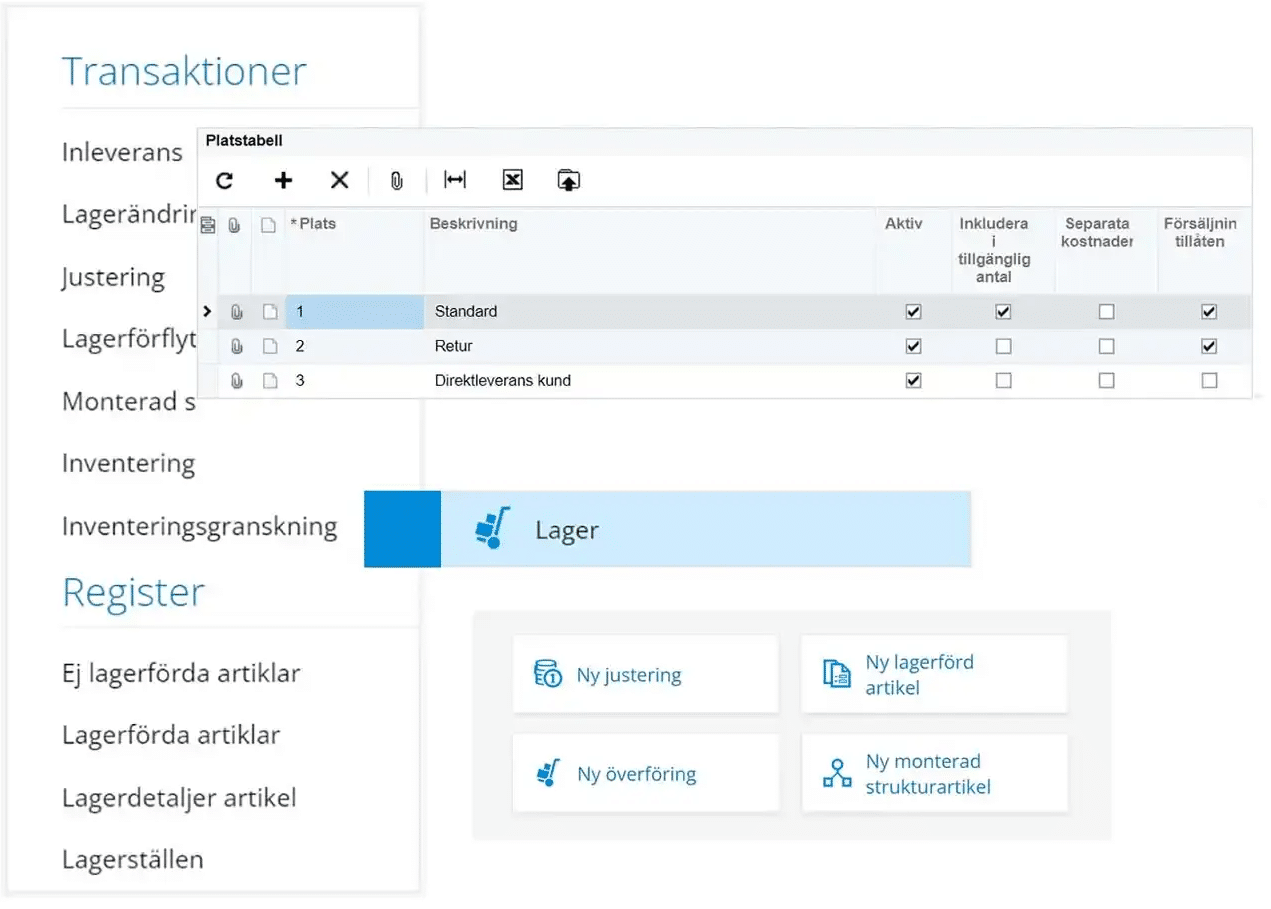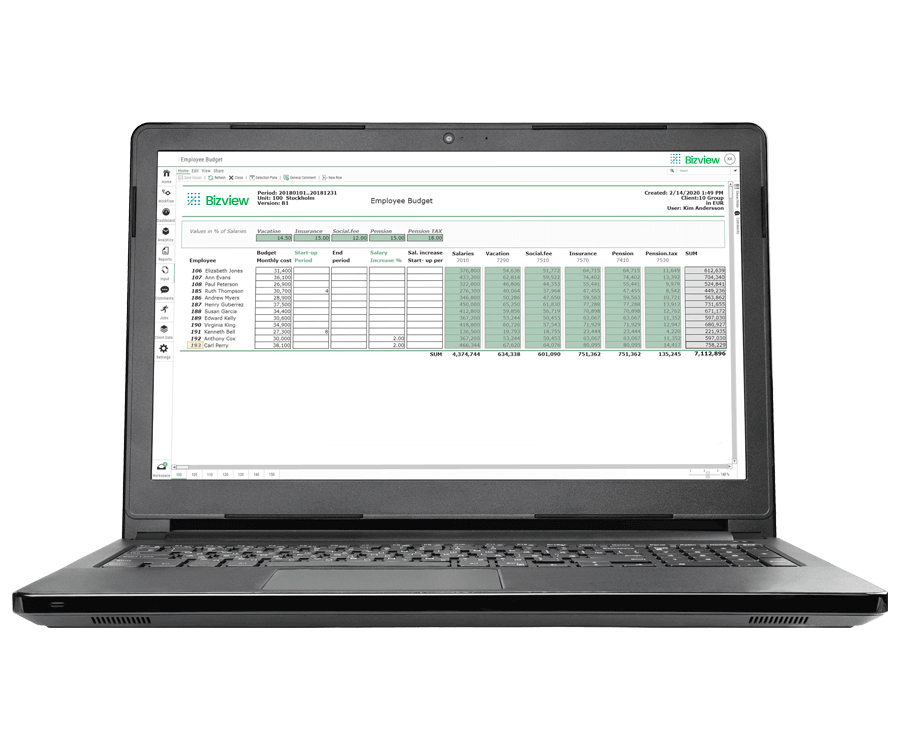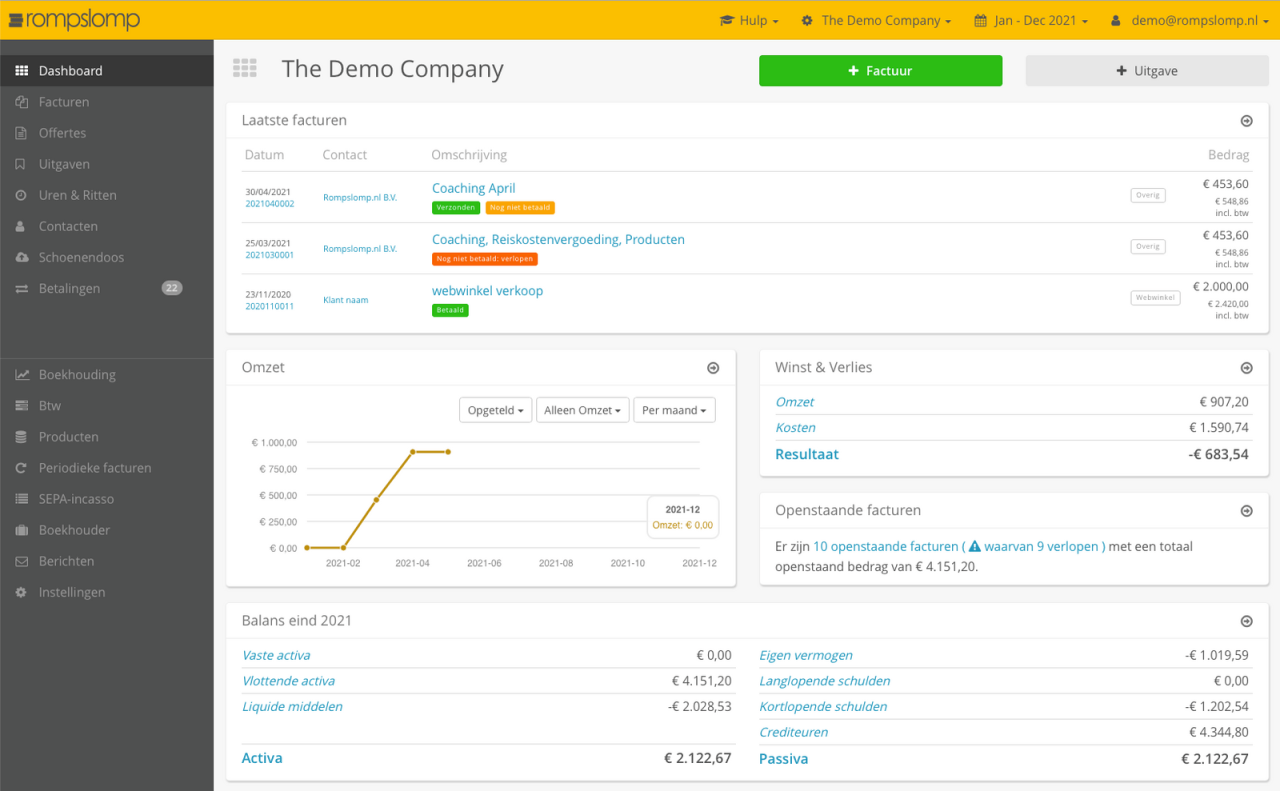Visma ERP is a robust solution designed to streamline business processes and enhance operational efficiency. By offering a suite of core functionalities, this enterprise resource planning system empowers organizations to manage various aspects of their operations seamlessly. The integration capabilities of Visma ERP with other systems further elevate its value, ensuring businesses can adapt to changing needs while maximizing their resources.
The advantages of utilizing Visma ERP extend beyond mere efficiency, as it supports data-driven decision-making and fosters improved collaboration across departments. With intuitive modules tailored to specific business requirements, this solution stands out in the competitive landscape of ERP systems.
Overview of Visma ERP
Visma ERP is a comprehensive enterprise resource planning solution designed to streamline and enhance business operations across various industries. By integrating core business processes into a single platform, Visma ERP enables organizations to improve efficiency, increase productivity, and ultimately drive growth.The core functionalities of Visma ERP encompass a wide range of business needs, including finance and accounting, supply chain management, customer relationship management (CRM), project management, and human resources.
Implementing ERP software can transform how businesses operate by centralizing data and automating routine tasks. For instance, incorporating ERP Microsoft enables companies to leverage advanced tools that enhance decision-making processes. This integration not only boosts productivity but also fosters collaboration across departments, driving overall success.
This holistic approach ensures that all aspects of the business are connected, facilitating better decision-making and resource allocation.
In today’s business landscape, leveraging systems such as ERP Microsoft can significantly enhance operational efficiency. These integrated solutions streamline processes, allowing organizations to manage resources more effectively. Additionally, exploring various ERP software options can provide tailored functionalities to meet specific business needs, promoting growth and innovation.
Core Functionalities of Visma ERP
Visma ERP offers an extensive set of features that support fundamental business activities. The following functionalities are central to its operation:
- Financial Management: This module provides comprehensive tools for budgeting, forecasting, reporting, and accounting. Organizations can track their financial performance in real-time and generate detailed financial statements.
- Supply Chain Management: Visma ERP optimizes inventory control, procurement, and logistics, ensuring that businesses can efficiently manage their supply chain operations.
- Customer Relationship Management: The CRM features enable companies to manage customer data, sales leads, and marketing campaigns, fostering better customer engagement and loyalty.
- Project Management: This functionality allows for effective planning, execution, and monitoring of projects, providing insights into resource utilization and project profitability.
- Human Resources Management: Visma ERP streamlines HR processes including recruitment, onboarding, payroll, and performance management, enhancing workforce productivity.
Benefits of Using Visma ERP for Businesses
The implementation of Visma ERP can yield significant advantages for organizations, including the following points:
- Increased Efficiency: By automating routine tasks and consolidating processes, Visma ERP reduces manual efforts, allowing employees to focus on higher-value activities.
- Improved Data Accuracy: With centralized data storage, businesses can ensure consistency and accuracy of information across different departments.
- Enhanced Decision-Making: Real-time reporting and analytics capabilities empower management with actionable insights, leading to informed strategic decisions.
- Scalability: Visma ERP is designed to grow alongside a business, accommodating increased transactions and operations without significant system overhauls.
- Cost Savings: By improving operational efficiency and resource management, organizations can achieve substantial cost reductions over time.
Integration Capabilities of Visma ERP with Other Systems
Visma ERP stands out in its ability to seamlessly integrate with a variety of third-party applications and legacy systems, enhancing its functionality and adaptability. The integration capabilities include:
- API Availability: Visma ERP offers application programming interfaces (APIs) that facilitate interaction between the ERP system and external applications, ensuring data can flow freely.
- Pre-built Integrations: The platform provides a selection of pre-built integrations with popular tools such as payment gateways, e-commerce platforms, and CRM systems, simplifying the implementation process.
- Custom Integration Solutions: Businesses can develop custom integrations tailored to their specific needs, further enhancing the ERP’s functionality within their operational landscape.
- Data Synchronization: Integration ensures that data is synchronized across various systems, reducing discrepancies and maintaining data integrity.
Implementation of Visma ERP

The implementation of Visma ERP is a crucial process that can significantly enhance an organization’s operational efficiency and data management. This guide will walk through the essential steps involved in deploying Visma ERP, while also highlighting key stakeholders and best practices for a successful implementation.
In today’s competitive business landscape, the implementation of ERP Microsoft solutions plays a crucial role in enhancing operational efficiency. By integrating various business processes, organizations can streamline their operations and improve decision-making. Furthermore, opting for an effective ERP software ensures that companies can adapt to changing market demands while maintaining a high level of productivity.
Step-by-Step Guide for Implementing Visma ERP
Implementing Visma ERP involves a structured approach that ensures all aspects of the organization are considered. Below are the key steps to follow:
- Define Objectives and Requirements: Establish clear objectives for the ERP implementation and identify the specific requirements of different departments.
- Assemble an Implementation Team: Form a team composed of IT staff, project managers, and representatives from relevant departments to oversee the implementation process.
- Conduct a Business Process Assessment: Analyze current business processes to identify areas for improvement and how Visma ERP can support these changes.
- Select an Implementation Partner: Choose a qualified partner with experience in Visma ERP to assist with the installation and configuration.
- Plan the Project Timeline: Develop a realistic timeline for the implementation, including key milestones and deadlines.
- Data Migration: Prepare for data migration by cleaning and transferring existing data into the new system, ensuring data integrity.
- System Configuration and Customization: Configure the ERP system according to the organization’s needs, including necessary customizations.
- Testing: Conduct thorough testing of the system to identify any issues prior to the full-scale launch.
- Training: Provide comprehensive training to all end-users to ensure they are comfortable with the new system.
- Go-Live: Launch the system officially, allowing all users to access and utilize the Visma ERP.
- Post-Implementation Support: Offer ongoing support and maintenance to address any issues or enhancements needed after deployment.
Key Stakeholders in the Implementation Process
The successful implementation of Visma ERP relies on the collaboration of various stakeholders throughout the organization. The following are key stakeholders to involve:
- Executive Management: Their support is crucial for resource allocation and strategic alignment.
- Project Manager: Responsible for coordinating the implementation process and ensuring timelines are met.
- IT Department: Provides technical expertise and manages system integration and data migration.
- Department Heads: Their input is vital to ensure the ERP system meets the needs of their respective teams.
- End Users: Engaging users from the beginning helps identify requirements and fosters acceptance of the new system.
Best Practices for Successful Deployment of Visma ERP
Adhering to best practices can significantly enhance the chances of a successful Visma ERP deployment. Consider the following recommendations:
- Engage Stakeholders Early: Involve all relevant stakeholders from the outset to gather input and ensure alignment with organizational goals.
- Communicate Effectively: Maintain open communication channels throughout the implementation process to address concerns and share updates.
- Set Realistic Goals: Establish achievable milestones and objectives to measure progress and success.
- Focus on Change Management: Implement strategies to facilitate user adoption and minimize resistance to change.
- Monitor and Evaluate: Continuously monitor the system’s performance and gather feedback to make necessary adjustments post-implementation.
“Successful implementation is not just about technology; it’s about people, processes, and managing change effectively.”
Features of Visma ERP

Visma ERP encompasses a wide range of functionalities designed to support various business processes. By integrating different modules, businesses can streamline operations, enhance productivity, and make more informed decisions. Below, we delve into the specific modules available within Visma ERP and highlight its reporting and analytics capabilities.
Modules Available in Visma ERP
Visma ERP offers a comprehensive suite of modules tailored to meet the diverse needs of organizations. Each module is designed to address specific business functions, facilitating seamless integration and workflow management. The key modules include:
- Financial Management: This module provides tools for managing accounts payable, accounts receivable, and general ledger, ensuring accurate financial reporting and compliance.
- Supply Chain Management: Optimizes the entire supply chain process from procurement to production and distribution, enhancing efficiency and reducing costs.
- Customer Relationship Management (CRM): Facilitates effective management of customer interactions and data, improving sales processes and customer engagement.
- Project Management: Enables businesses to plan, track, and manage projects effectively, ensuring that resources are allocated optimally and deadlines are met.
- Human Resources: Streamlines HR processes such as recruitment, employee onboarding, payroll, and performance management, contributing to better workforce management.
- Business Intelligence: Provides advanced analytics tools that help organizations gain insights through data visualization and reporting capabilities.
Comparison of Features between Visma ERP and Other ERPs
To better understand how Visma ERP stacks up against its competitors, a comparison of core features is essential. The following table presents a side-by-side analysis of Visma ERP and other popular ERP systems:
| Feature | Visma ERP | Competitor A | Competitor B |
|---|---|---|---|
| Financial Management | Comprehensive tools for accounting and reporting | Basic accounting features | Advanced financial forecasting |
| Supply Chain Management | Integrated supply chain tools | Limited integration capabilities | Strong procurement solutions |
| CRM Integration | Full CRM module included | Third-party integration required | CRM limited to sales functions |
| Reporting and Analytics | Advanced BI tools and custom reporting | Standard reporting options | Basic analytics only |
Reporting and Analytics Capabilities of Visma ERP
The reporting and analytics features of Visma ERP empower businesses to make data-driven decisions with confidence. The platform offers a variety of tools for generating insightful reports and conducting detailed analyses. Key capabilities include:
- Real-Time Data Access: Users can access up-to-date information, enabling immediate analysis and decision-making.
- Custom Report Building: Organizations can create tailored reports that suit their specific needs, enhancing the relevance of insights derived.
- Data Visualization: With visually appealing dashboards, users can easily interpret complex data, leading to better understanding and communication of insights.
- Predictive Analytics: Utilizing historical data, businesses can forecast future trends, helping to anticipate market changes and customer behavior.
- Integration with Other Systems: Visma ERP can integrate with various data sources, ensuring a comprehensive view of the business landscape.
User Experience and Support

The user experience of Visma ERP is designed to facilitate ease of use and efficiency in business processes. With a range of training resources and dedicated customer support, users can navigate the system effectively while overcoming common challenges that may arise during implementation and daily operations. This section delves into the training resources available, identifies typical user difficulties, and explains the customer support options offered by Visma for ERP users.
Training Resources for New Users
Visma provides a comprehensive suite of training resources tailored to assist new users in mastering the ERP system. These resources include:
- Online Tutorials: Interactive video tutorials and step-by-step guides are accessible through the Visma Learning Hub, allowing users to learn at their own pace.
- Webinars: Regularly scheduled live sessions hosted by experts cover various features and best practices, enabling users to gain insights from real-time discussions.
- User Manuals: Detailed documentation is available that Artikels all functionalities and processes, serving as a reference for users when navigating the system.
- Onsite Training Sessions: For organizations that require personalized instruction, Visma offers bespoke training sessions conducted at the client’s location.
These resources are crucial in helping users familiarize themselves with the software, ensuring a smoother transition and quicker adaptation to the ERP system.
Common Challenges and Solutions
Users may encounter various challenges while utilizing Visma ERP, which can hinder their overall experience. Addressing these issues promptly is essential for maximizing the system’s effectiveness. Some common challenges and their respective solutions include:
- Data Migration: Users often face difficulties when transferring data from legacy systems to Visma ERP. To mitigate this, Visma offers a structured data migration toolkit that guides users through the process, ensuring data integrity and accuracy.
- System Navigation: New users may feel overwhelmed by the complexity of functionalities. This can be alleviated through the comprehensive training resources provided, which empower users to become proficient and confident in navigating the interface.
- Integration with Third-Party Applications: Users might struggle with integrating Visma ERP with other business applications. Visma’s technical support team is available to assist with setup and troubleshooting, ensuring seamless connectivity.
- Customization Needs: Organizations often require specific customizations for unique workflows. Visma allows for configurations and upgrades tailored to user-specific needs, supported by extensive documentation and customer service.
Each identified challenge is supported by proactive solutions, enabling users to address issues effectively.
Customer Support Options
Visma is committed to providing exceptional customer support to ensure that users derive maximum benefit from their ERP system. The support options include:
- Helpdesk Support: Users can access a dedicated helpdesk that operates during business hours, providing assistance through email, phone, or chat.
- Community Forums: An active online community allows users to share experiences, ask questions, and receive advice from peers and Visma experts.
- Knowledge Base: A comprehensive online database contains articles, FAQs, and troubleshooting tips, allowing users to find solutions independently.
- Dedicated Account Managers: For larger enterprises, Visma assigns account managers who provide personalized attention, ensuring that the ERP system aligns with the organization’s evolving needs.
The multi-faceted support framework ensures that users feel supported throughout their ERP journey, facilitating a positive user experience and efficient resolution of any issues that may arise.